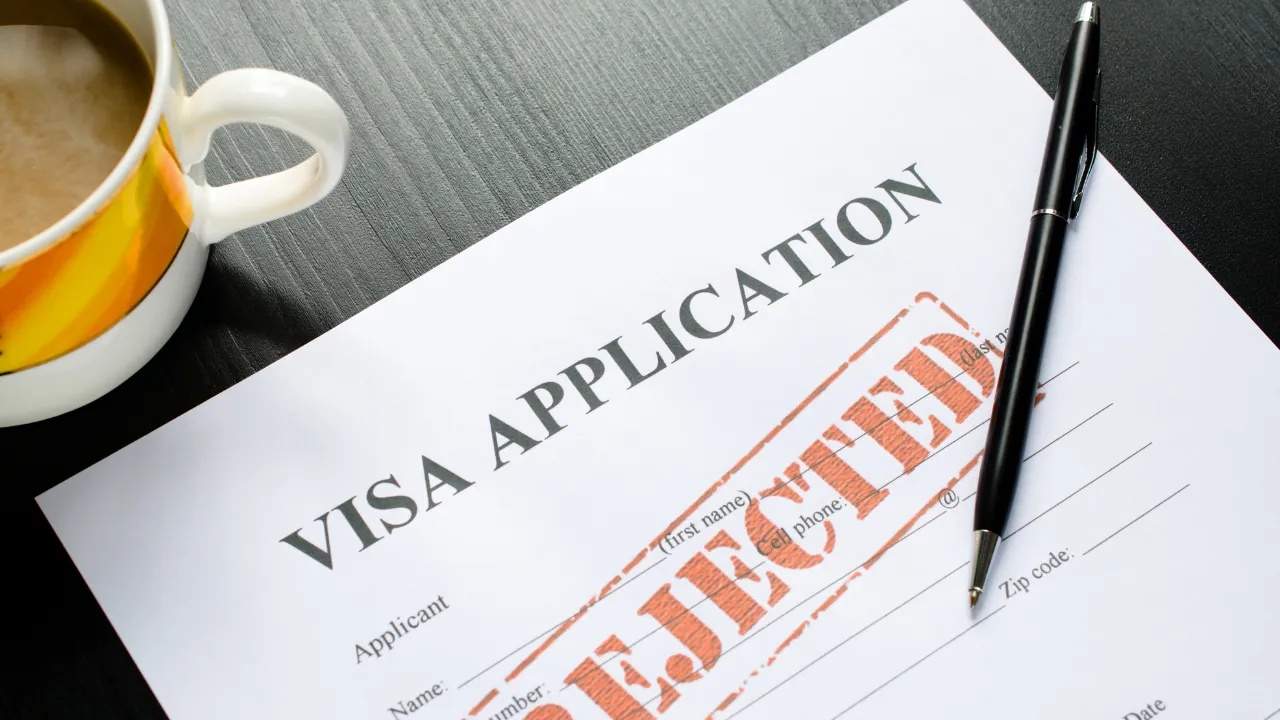
Understanding the E-2 visa most common denials can help investors avoid costly mistakes and prepare stronger applications. While the E-2 visa is a flexible and renewable option for entrepreneurs looking to build and grow a business in the United States, denials still happen—often due to preventable issues. In this article, we explore why E-2 visa applications are denied and what steps can be taken after a denial.
Discretion and Common E-2 Visa Denial Reasons
Although E-2 visa approval rates are relatively high, they are not guaranteed. Officers at U.S. consulates and USCIS have broad discretion in reviewing applications, which can result in unexpected denials. Below are six of the most common reasons E-2 visa applications are denied:
- Failure to Meet the Marginality Requirement
One of the key E-2 requirements is that the business must not be marginal. This means it must generate enough income to support not only the investor and their family but also at least three to four full-time U.S. workers within five years of operation. If your business plan lacks credible hiring projections or is not supported by financial data, this requirement may not be met.
- Insufficient Investment
Another common reason for denial is investing too little capital. The investment must be substantially committed to the business—not simply sitting in a bank account. While there’s no set minimum, investments under $100,000 typically raise red flags unless well justified.
- Speculative or Passive Business Models
E-2 visa applications can be denied if the business appears passive or speculative. Real estate investment or stock trading ventures, for example, often face additional scrutiny. The government looks for active management and the creation of real economic activity through U.S. job creation.
- Challenging Consular Jurisdictions
Some consulates are stricter than others. Officers who are unfamiliar with E-2 cases, or consulates that typically see large, well-funded enterprises, may be more likely to reject applications from small startups or single-owner businesses.
- Officer Discretion
The individual officer reviewing your case can significantly impact the outcome. Some officers are more open-minded, while others may be unreasonably critical. Since the E-2 process—particularly at consulates—is discretionary, even a strong application can be denied based on subjective interpretation.
- Applicant Ineligibility
In some instances, applications are denied simply because the applicant does not meet the E-2 requirements. Whether it’s an ineligible source of funds, insufficient ownership, or failure to show intent to develop and direct the enterprise, fundamental eligibility oversights can lead to rejection.
What Happens After an E-2 Visa Denial?
If your E-2 visa application was denied at a consulate, you cannot appeal the decision. U.S. courts generally do not review consular denials due to the principle of consular non-reviewability.
If the denial came from USCIS, you may have limited options to file a motion to reconsider or a motion to reopen. However, success rates are low, as USCIS itself will re-evaluate the application. While litigation is possible, it is expensive and time-consuming, and outcomes are uncertain.
In most cases, the best course of action is to learn from the denial and reapply. When reapplying, it’s critical to directly address the issues cited in the denial. This not only demonstrates responsiveness but also improves your credibility with adjudicating officers.
When to Reapply
There is no required waiting period. Reapply as soon as the denial reason has been addressed. This could be within a week if the issue was minimal, or several months if hiring or reinvestment is required. During the second interview, especially at a consulate, be ready to explain with documentation how you now meet all requirements and have resolved prior concerns.
How to Strengthen a Reapplication
After receiving a denial, gather as much information as possible—particularly from the consular officer. Take note of questions asked during your interview, and if a written explanation was provided, review it closely. Even if your new application is reviewed by a different officer, previous notes will be available to them.
Examples of Addressing Concerns:
- If your investment amount was too low, invest additional funds and provide supporting documentation such as invoices and receipts.
- If the business lacked evidence of job creation, hire at least one U.S. worker and include payroll records in the new submission.
- If the business appeared speculative, include updated contracts, client letters of intent, or other proof of commercial activity.
USCIS typically outlines the basis for denial in the rejection letter or in a Request for Evidence (RFE). Applicants should carefully review these documents and include responsive materials in their reapplication.
Final Thoughts
The E-2 visa offers real opportunity for foreign entrepreneurs, but denials are a risk—especially when application requirements are misunderstood or underestimated. Whether due to low investment, lack of job creation, or issues with consular discretion, knowing how to prepare and respond is essential. If you’re facing a denial or preparing a reapplication, it’s wise to work with an immigration attorney who can identify potential weaknesses and help build a compelling case.
Facing an E-2 visa denial—or trying to avoid one—can be overwhelming, but you don’t have to go through it alone. At Scott Legal, we’ve helped hundreds of investors navigate the E-2 process successfully, including reapplying after a denial. Our attorneys know what adjudicating officers look for and how to build a credible, well-documented petition that meets all legal requirements. Whether you’re submitting a first-time application or preparing a stronger reapplication, schedule a consultation with us today to get the expert guidance you need to move forward with confidence.


